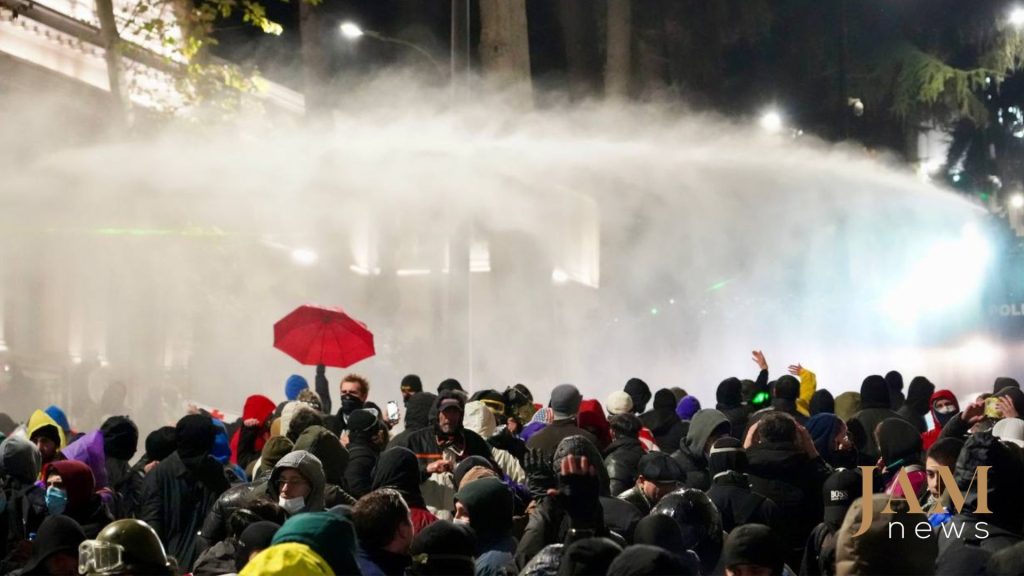
Baltic states to sanction Georgia’s officials over crackdown on pro-EU protests
Latvia, Lithuania, and Estonia have agreed to impose sanctions on Georgian officials responsible for suppressing protests over Tbilisi’s shift away from EU integration. Meanwhile, tensions rise between the EU and Georgia over the latter’s democratic erosion and increasing autocratic rule.
Georgia’s November parliamentary elections are believed to have been rigged to secure the ruling party’s majority. On 28 November, the European Parliament called for new elections in Georgia. The same day, Georgia’s ruling Georgian Dream party suspended EU integration talks until at least 2028, triggering protests for continued Georgia’s European path, as enshrined in its constitution and clashes with police.
Gabrielius Landsbergis, Lithuania’s Foreign Minister, confirmed the sanctions, stating that the three Baltic countries would target those involved in suppressing “legitimate protests” in Georgia.
He wrote on X on 1 December:
“The three Baltic States jointly agreed to impose national sanctions against those who suppressed legitimate protests in Georgia. Opponents of democracy and violators of human rights are not welcome in our countries.”
Kaja Kallas, the European Union’s High Representative for Foreign Affairs and Security Policy, also expressed concern, promising “direct consequences” for Georgia’s government.
In a statement on X, Kallas condemned the violence against the protesters and criticized Georgia’s ruling party for distancing the country from its EU ambitions.
“We stand with the Georgian people and their choice for a European future,” Kallas wrote, adding that the EU would take “direct consequences” in response to Georgia’s ongoing “democratic backsliding.”
DW reported that Kallas did not rule out sanctions against Georgia or restrictions on visa issuance as potential EU measures in the coming weeks.
Related:












